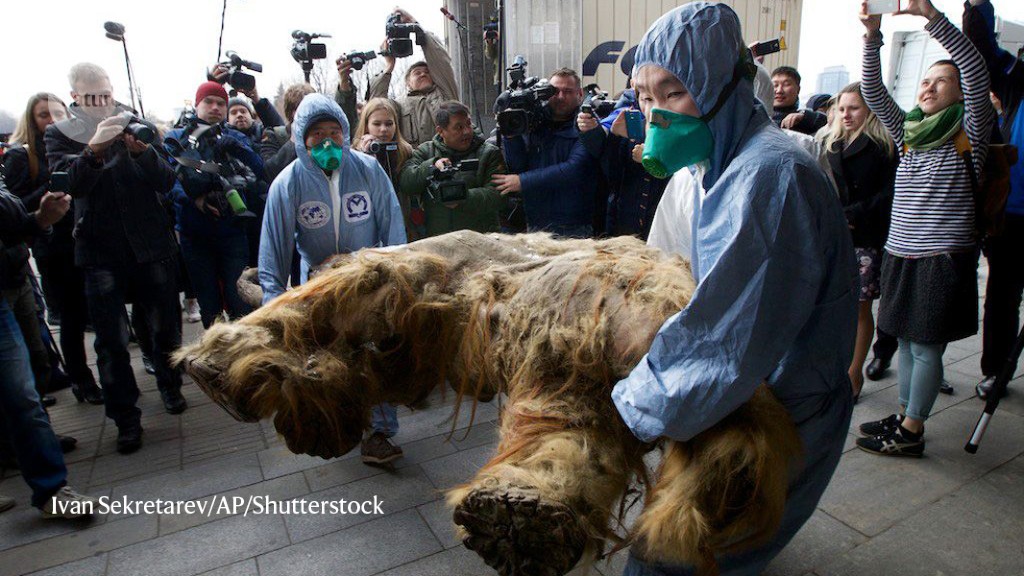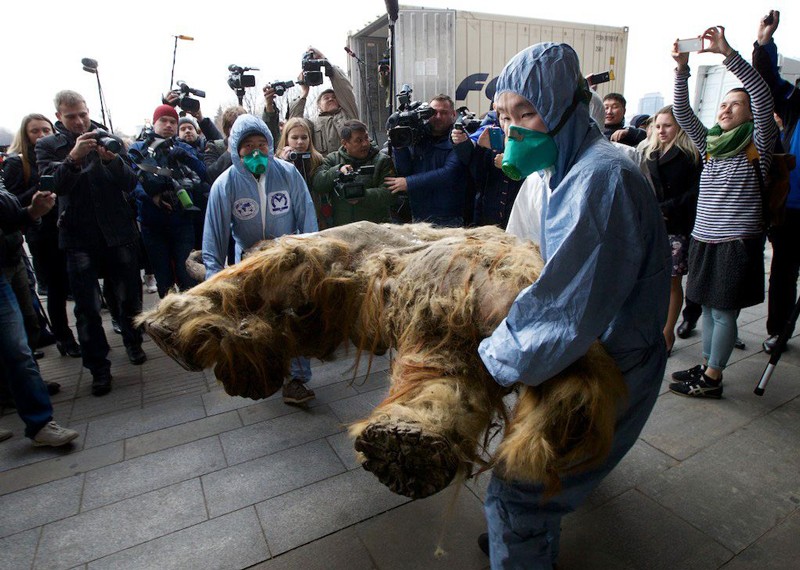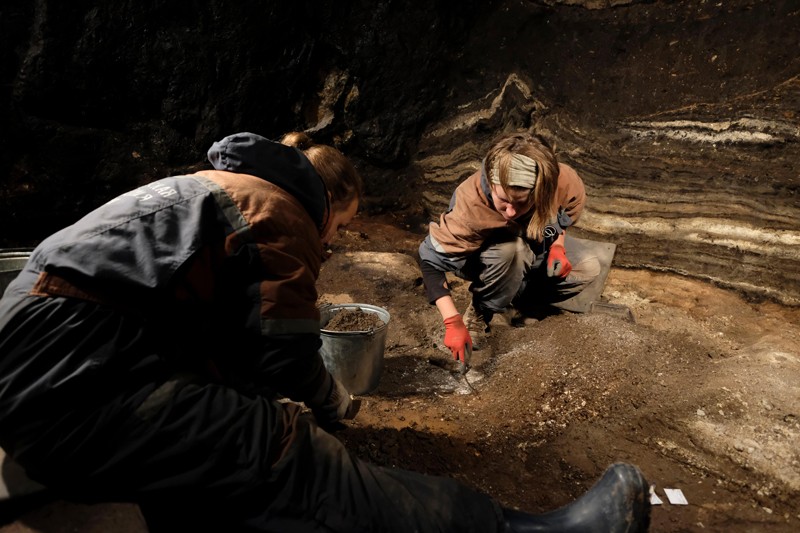Siberia is a treasure trove for palaeontologists. For more than a decade, Love Dalén, an evolutionary geneticist at the Swedish Museum of Natural History in Stockholm, has travelled to Russia every couple of years to hunt for the remains of mammoths and other ice-age creatures preserved in permafrost. Earlier this year, after two years of pandemic restrictions, Dalén and his team were preparing to leave on a long-delayed research expedition to the Russian wilds.
But in February, Russia invaded Ukraine. Since then, “everything has changed”, he says. Amid travel restrictions and sanctions, Dalén was forced to cancel the expedition. His situation is far from unique.
The war has plunged many scientists with ties to Russia into a state of uncertainty about the future of their research and their relationships with Russian colleagues. Between sanctions, collapsing collaborations and cancelled fieldwork, the study of the past through Russia’s often exquisitely preserved palaeontological specimens has become an unexpected casualty of war.
What exactly the conflict will mean for the field is still unclear. But Dalén says one thing is certain: “We will know less about the past because of this war.”
Pleistocene park
Russia has been at the centre of some of the century’s biggest archaeological and palaeontological finds — including the discovery of Denisovans, an ancient human species found in a Siberian cave and described in 20101. Siberia has also yielded a vast array of other remains from the Pleistocene epoch, which lasted from around 2.5 million years ago to 11,700 years ago and is colloquially called the ice age.
The quality and quantity of these remains is what makes Russian specimens so special. Up to 90% of all known mammoth fossils come from Yakutia, a region in eastern Siberia. Permafrost is so good at preserving organic material that Dalén and his colleagues have been able to sequence DNA from a 1.6-million-year-old mammoth tooth — the oldest genome on record — as they reported last year2.
At the heart of many of these discoveries are decades-long relationships between Russian and foreign researchers. But the war — and the response from the West — has made these collaborations “near impossible”, says Dalén. Many Western countries and universities cut ties with Russian institutions after the invasion. The United States announced in June that it will wind down research ties with Russia.
Most of these provisions don’t ban collaborations with individual scientists in Russia. But uncertainty has brought projects to a standstill. Olga Potapova, a palaeontologist at the Mammoth Site in Hot Springs, South Dakota, was planning to publish research on woolly rhinos and cave lions that included researchers in Russia. But after the invasion, she received e-mails from some Western colleagues, explaining that they couldn’t work with these research groups anymore. “Everything is delayed and I don’t know what to do,” she says.
For Western researchers, the war has brought on a crisis of conscience that has been simmering since Russia annexed Crimea from Ukraine in 2014. The peninsula is home to important Neanderthal sites, and since it was annexed, researchers have had to ask Russia for permission to access them.
Now, with stories about Ukrainian colleagues hiding in bomb shelters, fleeing their homes and in some cases fighting on the front lines, many Western palaeontologists are reluctant to ask the Russian government for anything. “It feels dirty,” says a researcher who asked to remain anonymous to protect the identities of people they work with. One colleague, they say, stayed in Kyiv to safeguard the city’s archaeological collections. “It’s horrible,” they say. “All you can hope is that you will never be in a situation where you have to put your life on the line to save your collection.”
At the same time, Western researchers are avoiding contacting Russian colleagues out of concern about scrutiny from the Kremlin. More than 8,000 Russian scientists and science journalists have signed a letter denouncing the war, and Western researchers say that their colleagues in Russia are being monitored closely for anti-war sentiment.
“The fact that one e-mail address is from the US and another is Russian could attract attention,” says another researcher who asked to stay anonymous to protect colleagues in Russia. “We are on the precipice that something could go terribly wrong if we aren’t careful.”
Stalled studies
Russian science is taking a hit from severed relations. One of the most affected areas is ancient-DNA research, says Albert Protopopov, a palaeontologist at the Academy of Sciences of the Republic of Sakha in Yakutsk, Russia.
Most of the expertise in working with fragile DNA and amino acids that are thousands of years old is in laboratories in North America and Western Europe. Over the past few years, Russian researchers have tended to outsource this delicate work to colleagues abroad. These arrangements led to the Denisovan discovery co-authored by researchers in Germany, who sequenced the DNA from a finger bone sent to them by Russian colleagues.
A decade later, nearly every known Denisovan fossil has come from the same Siberian cave. But between the pandemic and the war, getting new samples has been challenging and research has “stalled” as a result, says Katerina Douka, an archaeological scientist at the University of Vienna.
“Discoveries out of Denisova were captivating the world,” she says. “Seeing this just collapse in the space of a couple of months is absolutely heartbreaking.”
Russian scientists have been developing their own palaeontological sequencing capabilities for years. But their progress will probably be halted for as long as sanctions prevent labs from ordering reagents from abroad.
Potapova, who lived through the Russian economic recession after the fall of the Soviet Union, says that the current downturn will affect funding for palaeontology and other research in Russia for years. “In terms of science, it will be devastating,” she says, adding that her Russian colleagues “will be lucky to keep their salaries”.
Should I stay or should I go?
Protopopov says that many of his Russian colleagues have also had to suspend their field seasons in Yakutia this year. He hopes that international cooperation will soon resume, pointing out that Russia and the West maintained close scientific ties through the cold war. “This cooperation is beneficial to everyone,” he says.
But even if travel restrictions were to lift, Western scientists would remain uneasy about returning to Russia . “The situation is just too volatile,” says a researcher who agreed to speak on the condition of anonymity. “I honestly don’t want to end up in a Russian prison.”
Safety isn’t the only concern. Getting access to sites requires permits, and Western researchers are concerned that officials could deny them as a propaganda move. Equally, returning to the field while Russian President Vladimir Putin remains in power could be perceived as tacit endorsement of his regime.
For his part, Dalén is content to wait out the sanctions. He calls the impact on his research “incomparable to the crap the Ukrainians are going through”.
“There are more important things than understanding the past,” he says. “These fossils have been lying here for hundreds of thousands of years. They can wait a bit more until this has been resolved.”









More News
Judge dismisses superconductivity physicist’s lawsuit against university
Future of Humanity Institute shuts: what’s next for ‘deep future’ research?
Star Formation Shut Down by Multiphase Gas Outflow in a Galaxy at a Redshift of 2.45 – Nature